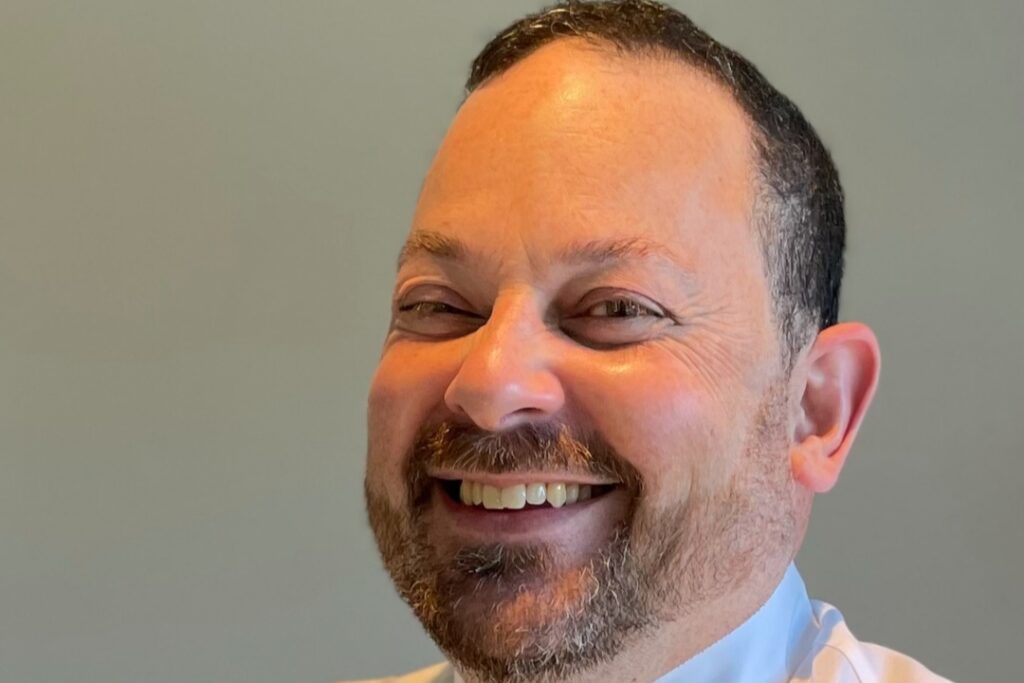I am the new Chief Executive Officer of NECHAMA – Jewish Response to Disaster. While NECHAMA’s home base remains in the Twin Cities of Minnesota, our staff works remotely from around the country. When not deployed, you will find me in the suburbs of Washington, DC, where I have lived since graduate school. An attorney by training and a long-time nonprofit policy advocate, I spent more than two decades working for the Jewish Federation system and ran its Emergency Committee and domestic disaster response. With two weeks as NECHAMA’s CEO under my belt, I am excited by this opportunity to work with you and engage in literal tikkun olam or “repair of the world.” This has been the primary motivation in my professional and personal life.
I was drawn to NECHAMA because its mission and ideals mirror my own. Founded in 1993 and rooted and guided by Jewish values, NECHAMA now has three overarching priorities: representing Jews and Judaism in communities shattered by disaster; providing a platform for volunteers (Jews and non-Jews alike) to explore their identities and purpose; and spreading comfort and hope to people in desperate need. Nechama actually means “comfort” in Hebrew. NECHAMA is a small but mighty organization that helps damaged communities heal, not because they are Jewish but because we are. Unfortunately, with global warming growing ever more pronounced, each year NECHAMA’s essential mission becomes increasingly important.
Which brings me to a recent shabbat when my synagogue recognized and celebrated Jewish Disability Awareness, Acceptance and Inclusion Month (“JDAIM”). Every February, JDAIM raises awareness and fosters inclusion of people with disabilities. Our tradition teaches that we are all created in the image of God and that even Moses was “slow of speech and slow of tongue.” We have made progress towards full inclusion, but, unfortunately, we are far from the end of this journey. While this issue is important for many reasons, during that shabbat service as your new CEO, I was thinking about a very specific part of inclusion and accessibility. Individuals with disabilities are particularly susceptible to neglect and trauma during natural disasters and are up to four times more likely to die in floods, earthquakes, tornados, and wildfires.
Think back to Hurricane Katrina in 2005. The vast majority of the almost 1,400 individuals who died on the Gulf Coast were individuals who had disabilities or were over the age of 60, or both. Although there were many reasons for this disproportionate impact, the needs of individuals with disabilities were not adequately considered in emergency planning. For many people with disabilities, vehicles used for evacuation didn’t work for them, refuge sites were inaccessible and lacked necessary equipment, and those with visual impairments and hearing loss often were unable to access lifesaving information about the storm and rescue. Twelve years later during Hurricanes Harvey and Maria, the same thing happened. Public emergency planning and response failed people with disabilities and led to deadly consequences. Afterwards, too often there was another disturbing trend as individuals with disabilities who had lived independently were often transferred to institutional settings, because no good options were available for them. We hope that this will not happen during the next superstorm.
In the past 19 years, FEMA’s Office of Disability Integration and Coordination has made progress in considering and meeting the needs of individuals with disabilities in terms of emergency planning, response and recovery. Unfortunately, many states and localities have not followed suit.
For three decades, NECHAMA has always focused on meeting the needs of the most vulnerable in communities impacted by disasters, including by mucking out and gutting many houses owned by people with disabilities. We will continue to do so in the years ahead, and we will also push for more progress by speaking out on these and related issues on the public stage. I look forward to working with you to advance NECHAMA’s important mission. Please drop me a note at [email protected] to introduce yourself and let me know how and why you connect with NECHAMA.
Warmly,
Stephan Kline
Chief Executive Officer
